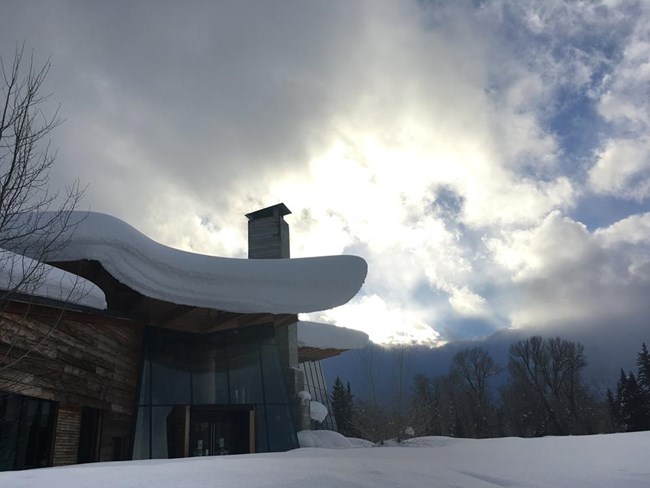Winter Activities
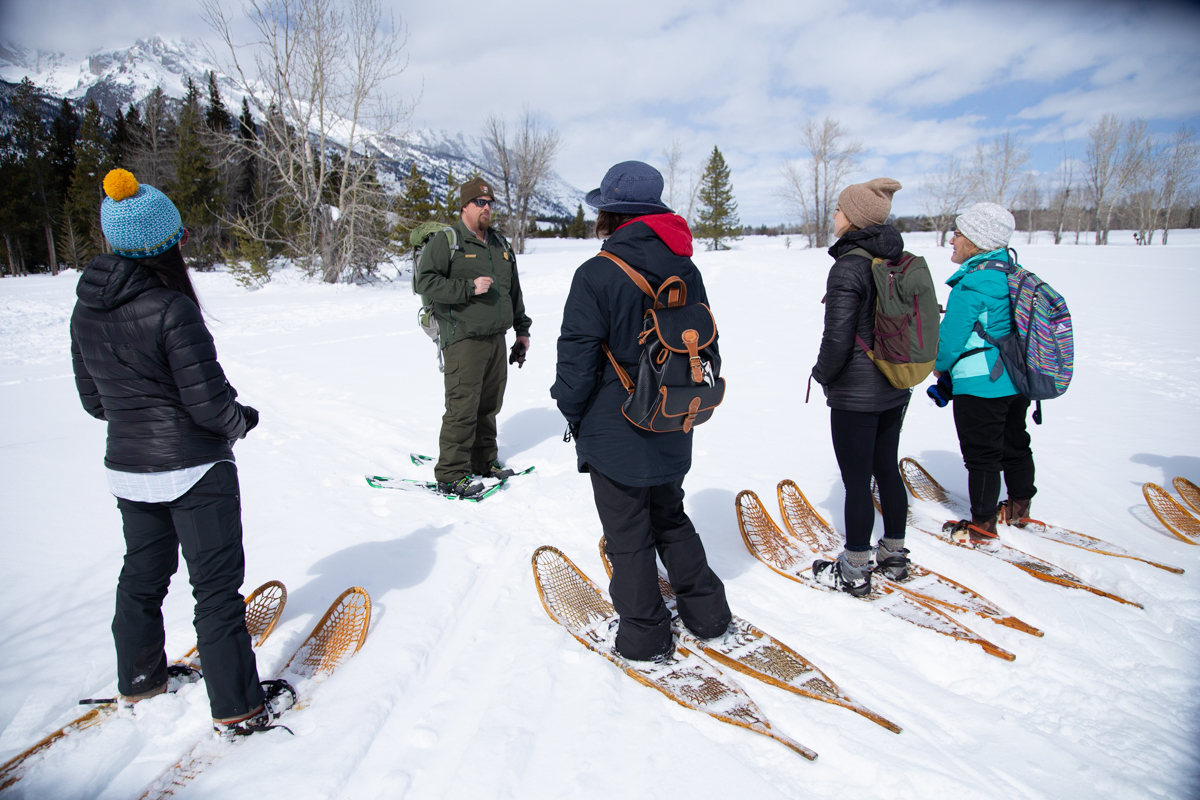 Snowshoe with a Ranger
Snowshoe with a Ranger
Are you curious about winter ecology or snow science? Would you like to experience the park in winter? A snowshoe hike with a interpretive ranger is the perfect introduction to winter in Grand Teton National Park and snowshoeing. Snowshoe with a Ranger is offered Tuesdays and Thursdays, January 6–March 12, 2026. Beginning December 1, call 307-739-3399 Monday-Friday to make a reservation.
Snowshoe hikes range from 1-2 miles of walking with little to no elevation gain. Hikers should wear good warm waterproof boots, and be prepared to be out in all weather (pack layers, sunscreen, water, snacks, etc.) Children must be 8 years old or older to go on the snowshoe hike. Snowshoes are provided.
Cross-country Skiing & Snowshoeing
Cross-country skiing and snowshoeing are two of the best ways to experience the exhilaration of winter travel. Winter is an excellent time to see wildlife and/or signs of wildlife in the snow. From November 1 to April 30, the Teton Park Road from the Taggart Lake Trailhead to Signal Mountain Lodge is open for non-motorized use only. You can ski or snowshoe on this road, which is intermittently groomed to provide a packed surface for snowshoeing and cross-country touring. Other places to enjoy cross-country skiing and snowshoeing include Colter Bay, Antelope Flats Road, Taggart Lake and Flagg Ranch. If you plan to ski or snowshoe the Moose-Wilson Road, park at the Granite Canyon Trailhead or at the junction to the Death Canyon Road.
Proper preparation and planning ensures a great winter experience in Grand Teton National Park. Visit our cross-country skiing and snowshoeing page.
Snowmobiling
Snowmobiling is a fun way to travel through snowy terrain. Snowmobiling is limited in John D. Rockefeller Jr., Memorial Parkway and Grand Teton National Park. Please visit our snowmobiling page to learn about what you need and where to go.
Visit the Yellowstone National Park Web site for information regarding snowmobiling.
Guided Tours
The following businesses are licensed by the National Park Service to provide cross-country ski or snowshoe tours and services in the park during the winter season:
Eco Tour Adventures
Backcountry Skiing, Ski Mountaineering, and Avalanche Courses:
Exum Mountain Guides
Jackson Hole Mountain GuidesTeton Backcountry Guides
Safety in the Backcountry
Skiers and snowboarders are reminded that your safety is your responsibility. You must rely on your own good judgment, adequate preparation and constant awareness. Backcountry users should be in good physical condition and stick to routes that are within their ability and comfort levels. Hypothermia and frostbite can set in quickly, and are difficult to care for in the backcountry. Take preventative measures to avoid the dangers of cold weather; look for signs of hypothermia and frostbite on members of your group. Traveling alone can be especially dangerous; always give friends or family a detailed itinerary and stick to your plan. Permits are required for all overnight backcountry trips.

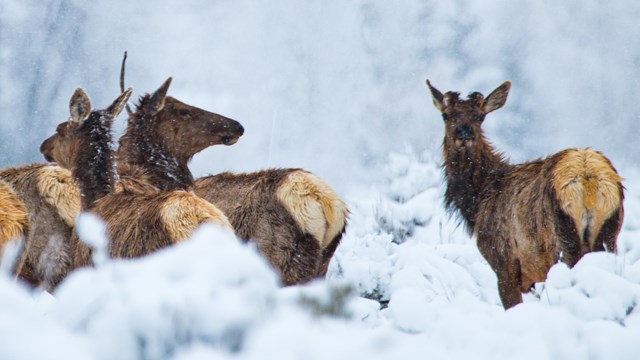
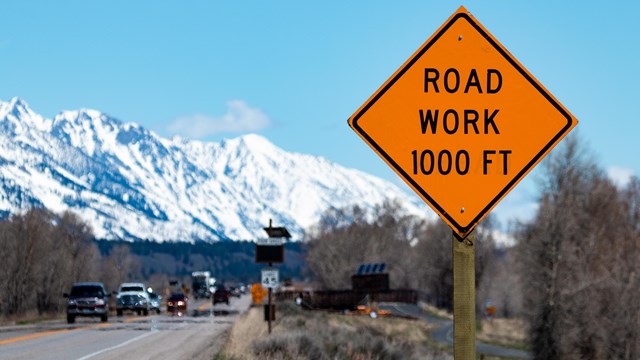
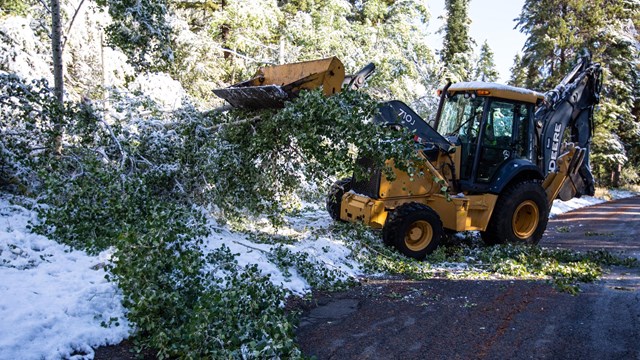
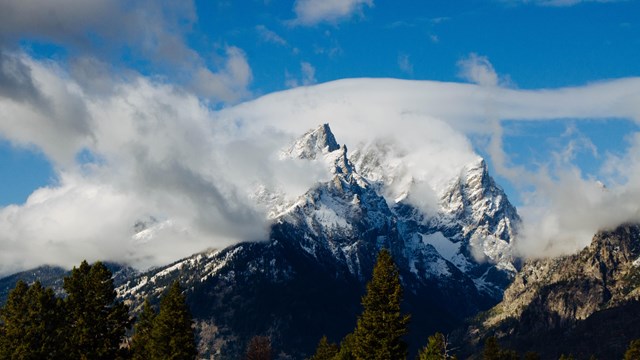
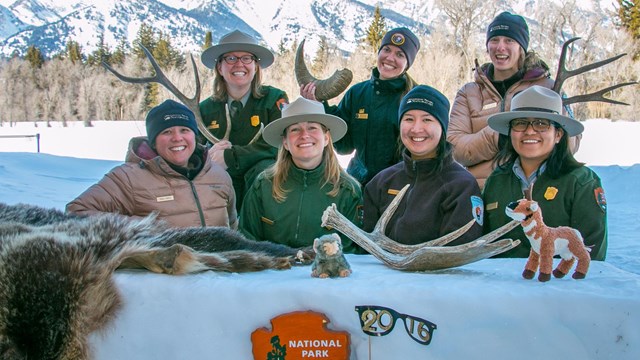

 Snowshoe with a Ranger
Snowshoe with a Ranger